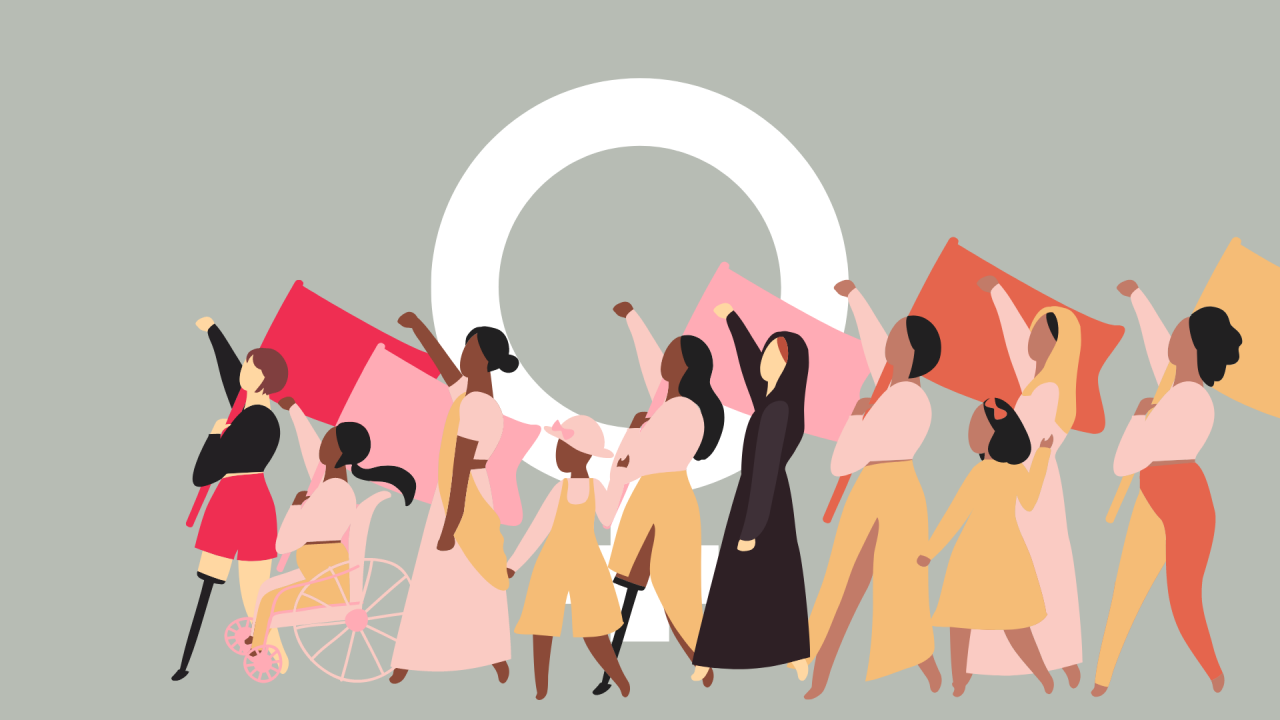
Author: Kalina Todorova
In the last few years it has become fairly common in Bulgaria to use the word feminism, but not for its intended purpose, but rather with obvious disregard, mainly describing the so-called "man-hating" behavior. You've probably heard the word feminist quite often in combination with the statement that being a supporter of the idea is just fashionable.
But what actually stands behind the ideology of feminism? Is it really just a sensational superficial fashion or does it contain far more essential principles? How and to what extent has the idea been integrated in Bulgaria?
A brief history of feminism
Ever since antiquity, in Western cultures the figure of the woman has inhabited the domestic space. She was seen by society as a mother, a wife and a housewife. Public life was reserved for the man. In ancient Greece, there was even a definition that only free men who had reached the age of adulthood could be considered "citizens". Women, children and servants could not participate fully in society. Over the years, this radical understanding has changed fundamentally, but it has taken centuries of development.
It was not until the late 19th century that the first convention on women's rights took place in New York. Although on a small scale, this revolt, later known as the suffragette movement, marked the beginning of a long process. This is the so-called "first wave" of feminism, aimed primarily at the right to vote.
The more radical "second wave" began in the 1960s and 1970s, directing the movement to the political sphere of life and the accompanying problems of inequality and discrimination.
Modern feminism or the "third wave" is shaped as an ideology precisely as a result of this whole process. Today, the term includes not only the struggle for equality between men and women, but also the all-encompassing pursuit of equality between races, genders, abilities and classes.
Different forms of feminism?
Contemporary theorists also distinguish between three main forms of feminism. The first is the radical form. These are the proponents of the idea that the dominant status quo (heterosexual white male) must be completely overturned and changed. This means opening up more opportunities for women to hold key positions and roles, for example. Many people think that this is the dominant form of feminism. The truth is that this is the least common.
The second type is liberal. This type lacks the radical element, and the main goal is to work together with, not against, the structure of mass society so that women can integrate fully.
The third and most complex type is materialist feminism. It is based on the view that capitalism and patriarchy are at the root of social oppression towards women. In this type, gender is seen as a social construct that serves only to reinforce and maintain established norms.
Proponents of this and the previous types of feminism are far from the definition of a "man hater." On the contrary. Feminism in its most widespread form preaches not only gender equality - in terms of socio-cultural, political and economic opportunities - but also advocates the cultivation of equal, purely human attitudes in relations with others, regardless of who they are and where they come from.
In this sense, we can say that feminism is really just a way of communicating with others and in society as a whole. However, in Bulgaria the term has been integrated in a different, negative way.
Feminism in Bulgaria

To a great extent, this is due to our cultural mentality which is left over from the time of socialism, when the state really treated everyone as equals. On the one hand, this is in our favor, because in our country there can be no question of a pay gap or a discrepancy in the availability of professional positions for men and women, as is the case in some countries in the West.
This is the main argument against feminism - that it is simply superfluous and unnecessary. However, this argument has many flaws. The main oversight is that regardless of the apparent equality between men and women, discrimination based on race and ethnicity, as well as sexual orientation and identification, is present in all spheres of life in Bulgaria.
We live in an open, globalised society, but prejudices, chauvinistic attitudes and views still prevail. Sometimes without even suspecting it. Plovdiv, Sofia and all other major cities are already multicultural development centres. Adopting feminism is only a small step towards being part of a progressive, global society in which advocating for justice and defending equality is a way of life, not a trait of capricious fashion.
If you’re still not convinced about the place and importance of feminism, watch this short video in which Tania Lessenska talks about sexism, prejudices and domestic abuse in Bulgaria.